SGFIN Sustainability Summit 2025
13 Mar 2025
On 13 March 2025, SGFIN hosted its annual SGFIN Sustainability Summit, bringing together leading experts, policymakers, and industry practitioners to address the evolving landscape of sustainable finance and climate action. With a packed agenda of insightful discussions and presentations, centred around the theme of ‘Commitments, Challenges, and Innovations in the Transition to Sustainable Economy’, the summit highlighted SGFIN’s commitment to shaping sustainability strategies and fostering collaboration across sectors.
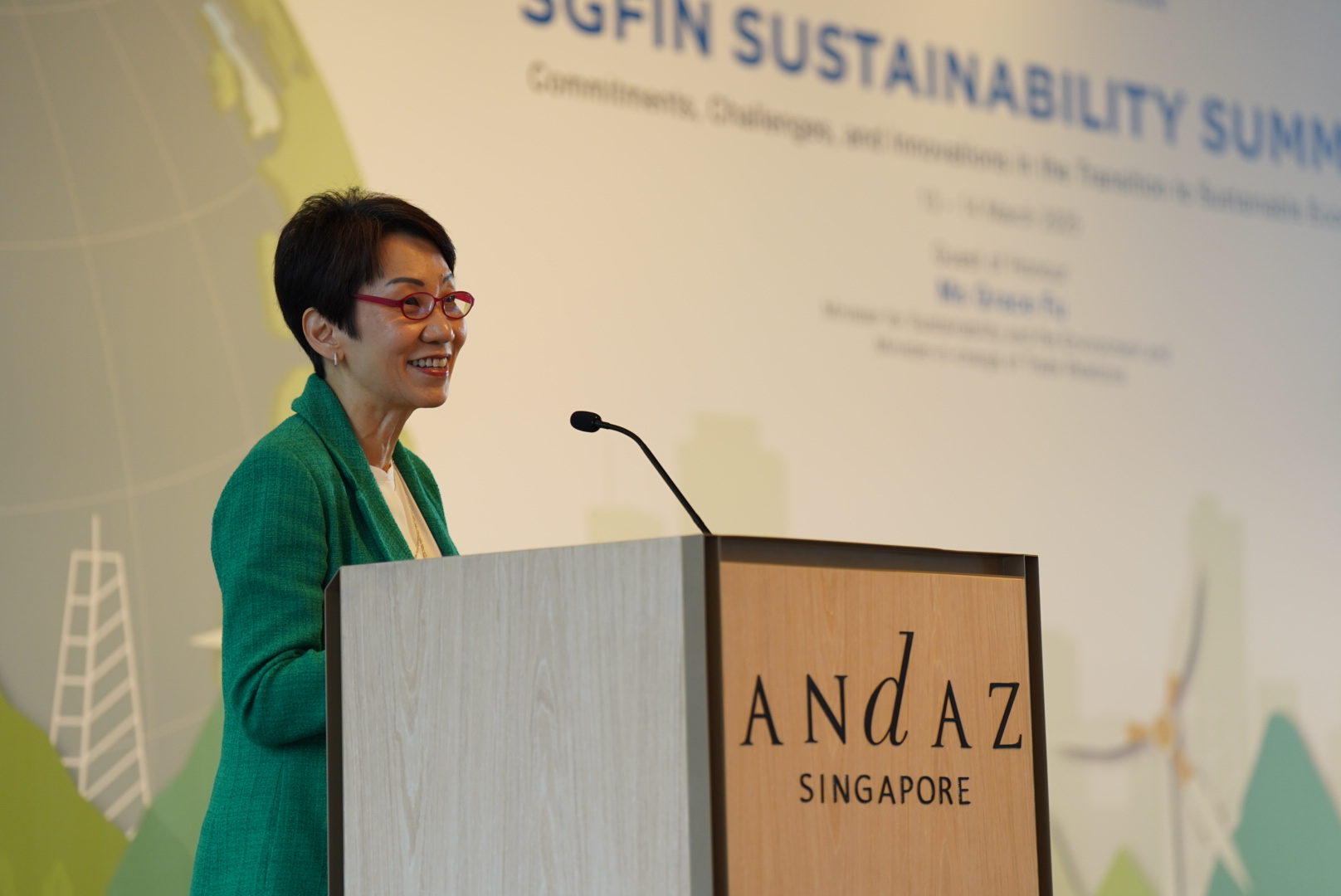 Opening Address
Opening Address
The Guest of Honour, Ms. Grace Fu, Minister for Sustainability and the Environment & Minister-in-charge of Trade Relations, delivered the opening address, emphasizing that 2025 marks a crucial year for climate action. She highlighted the increasing geopolitical and economic challenges that threaten global sustainability commitments but reaffirmed that progress remains possible through four key enablers: capital, standards, policies, and knowledge. Minister Fu outlined Singapore’s initiatives, including the Financing Asia’s Transition Partnership (FAST-P), the Singapore-Asia Taxonomy, and carbon credit partnerships under Article 6 of the Paris Agreement.
Minister Fu’s speech was a call to action—a reminder that while challenges persist, the urgency of climate actions demands bold and collaborative efforts. Governments, businesses, investors, and academia must come together to create sustainable prosperity for future generations. [Read more]
The summit featured three compelling presentations from distinguished speakers:
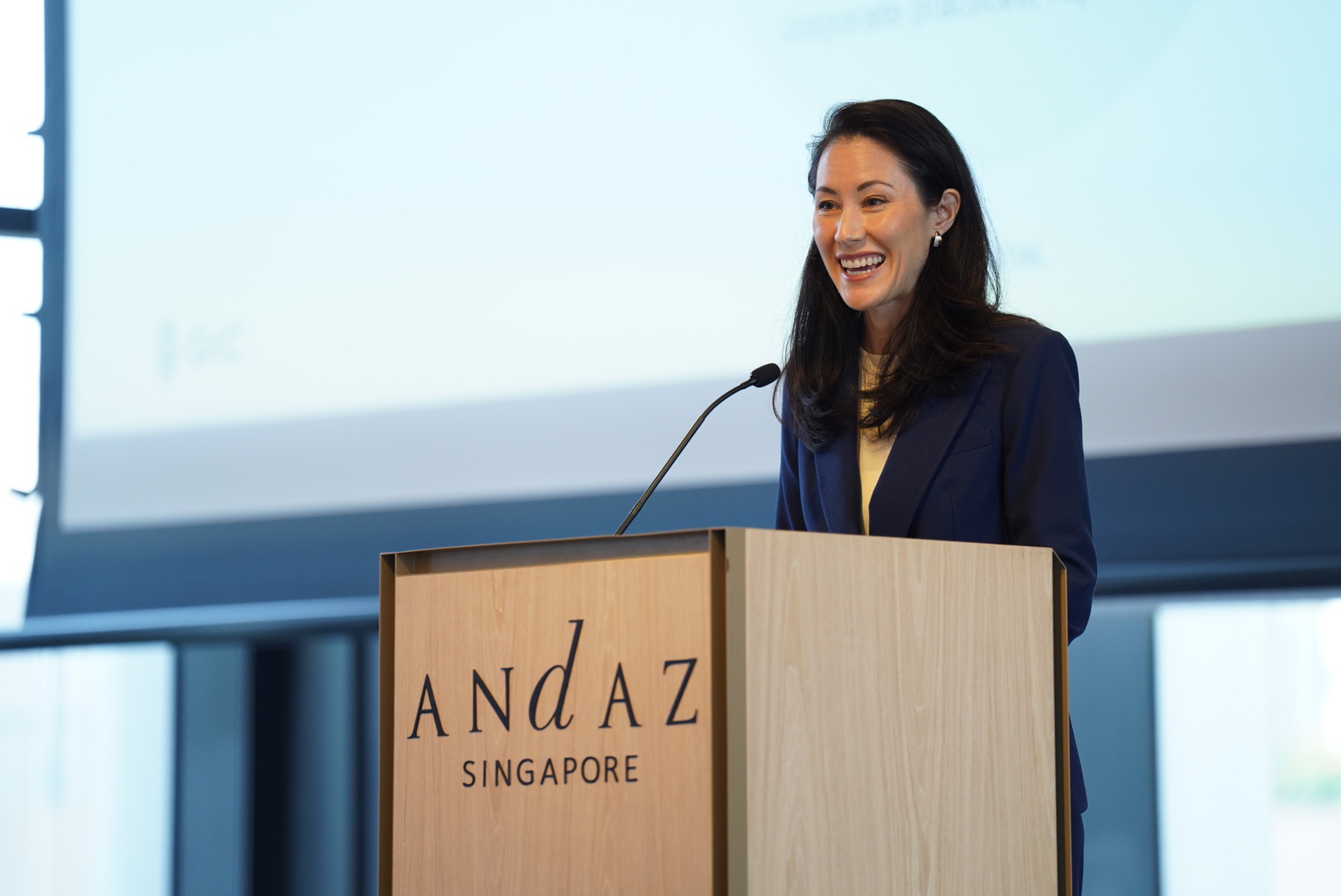
Industry Keynote
Ms. Emily Chew, Head of Sustainability at GIC, delivered the industry keynote, on “Investing through the cycle: Sustainability from the long-term capital allocator’s point of view”. She highlighted that climate change significantly impacts long-term investment returns and emphasised that the cost of climate impact could be felt unevenly amongst developed and emerging markets. GIC integrates sustainability both as a risk management tool and an investment strategy, identifying climate solutions that can create substantial value while also undertaking climate research to better inform portfolio decisions. She highlighted GIC’s work on climate scenario analysis, which outlines four potential climate scenarios, with “too little, too late” currently the most likely, reinforcing the need for investors to factor in physical risks. Despite market volatility, she underscored sustainability as a lasting investment priority, urging rigorous research, collaboration, and execution to drive meaningful change. [Read more]
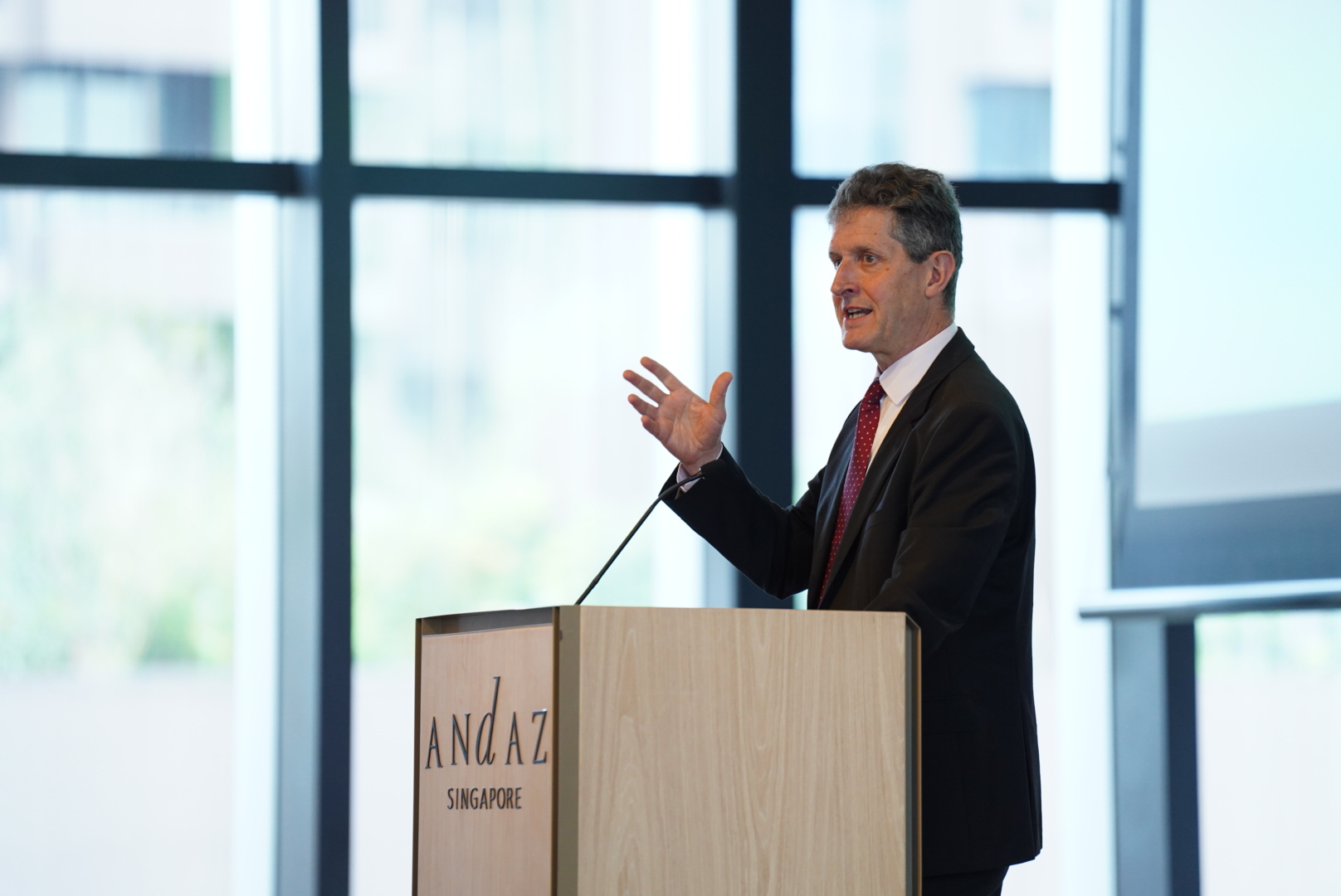 Academic Keynote
Academic Keynote
Professor Myles Allen from the University of Oxford gave the academic keynote, emphasizing the urgency of achieving geological net zero by focusing on both reducing fossil fuel use and increasing permanent carbon storage. He cautioned against misclassifying natural carbon uptake as active removal in carbon markets, warning that this could distort emissions reduction efforts. He highlighted the severe underinvestment in carbon capture and storage (CCS), which currently receives less than 1% of global transition funding, and stressed that without urgent investment in CCS alongside emission reductions, climate targets risk being met only on paper. He called for a fundamental shift in climate finance to prioritize real carbon disposal and warned that failing to act swiftly would jeopardize the goals of the Paris Agreement. [Read more]
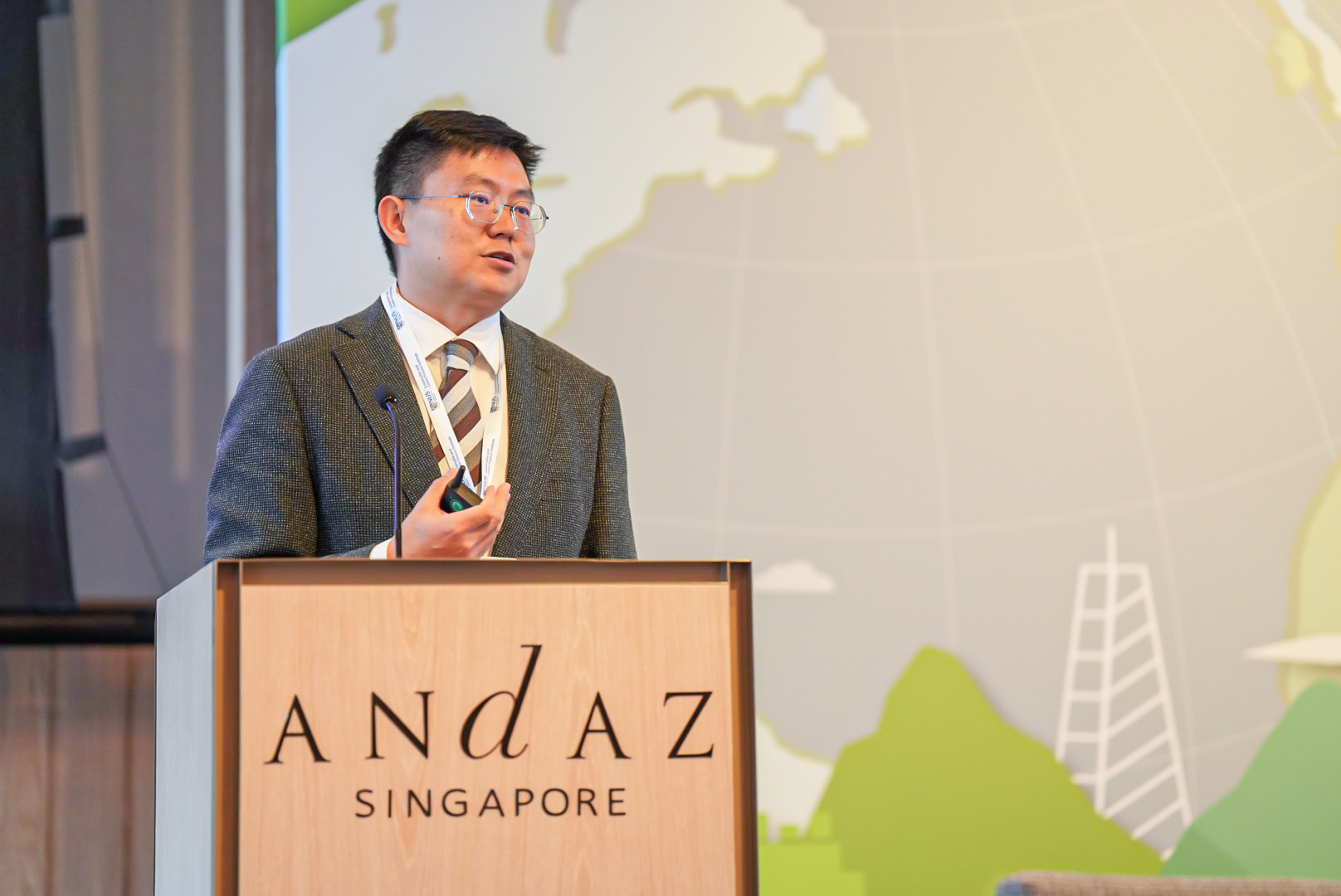
Plenary Presentation
Professor Guojun He from the University of Hong Kong gave the plenary presentation, where he explored innovative regulatory approaches to sustainability. He examined the limitations of conventional sustainability policies, which often rely on government mandates or financial incentives but struggle with cost-effectiveness and scalability. He presented four innovative case studies from China that demonstrated alternative regulatory approaches, including green nudges in consumer platforms, social media-driven accountability, improved government public service websites, and multi-task monitoring across supply chains. His insights encouraged scholars and policymakers to explore simple, low-cost strategies for enhancing sustainability regulations beyond traditional compliance-based ESG policies. [Read more]
The summit also featured four engaging panel discussions with industry experts, tackling key sustainability challenges:
1. Net Zero Commitments and Business Strategy
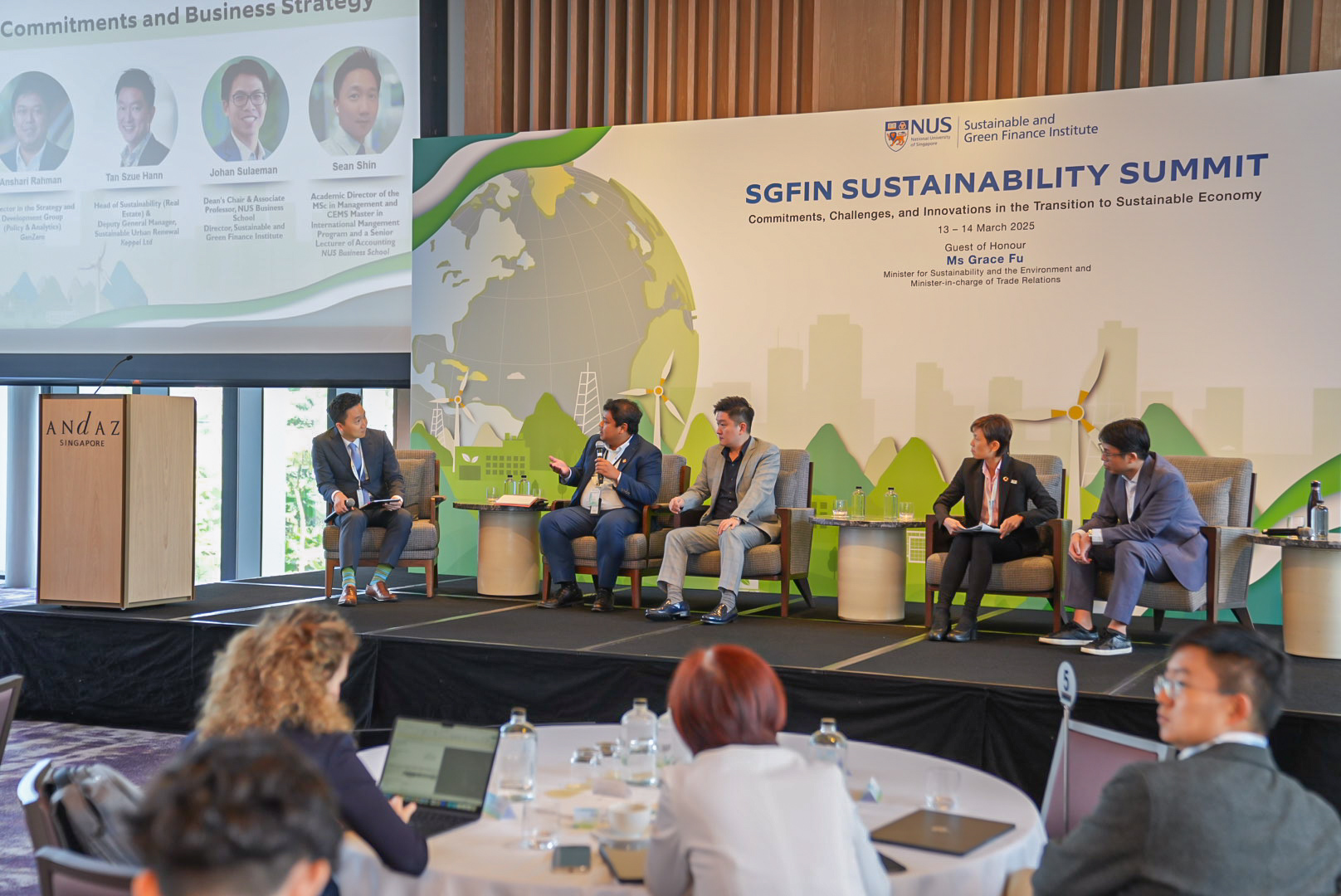
The first panel session examined net-zero commitments, beginning with insights from SGFIN’s research, which found that while larger Singapore-listed firms covering most of the market capitalization have set net-zero targets, a significant portion of emissions remains unaddressed. Our panelists, Sandra Seah (Bird & Bird), Anshari Rahman (GenZero), Tan Szue Hann (Keppel Ltd.) and Professor Johan Sulaeman (SGFIN), discussed challenges in setting viable decarbonization strategies, including navigating evolving regulations, energy supply constraints, and the complexities of benchmarking emissions. The discussion also highlighted the Science Based Targets initiative as a useful framework for setting meaningful near-term targets. Overall, the session provided a critical look at the practical steps and barriers businesses face in their path to net zero. [Read more]
2. Sustainable & Responsible Consumption
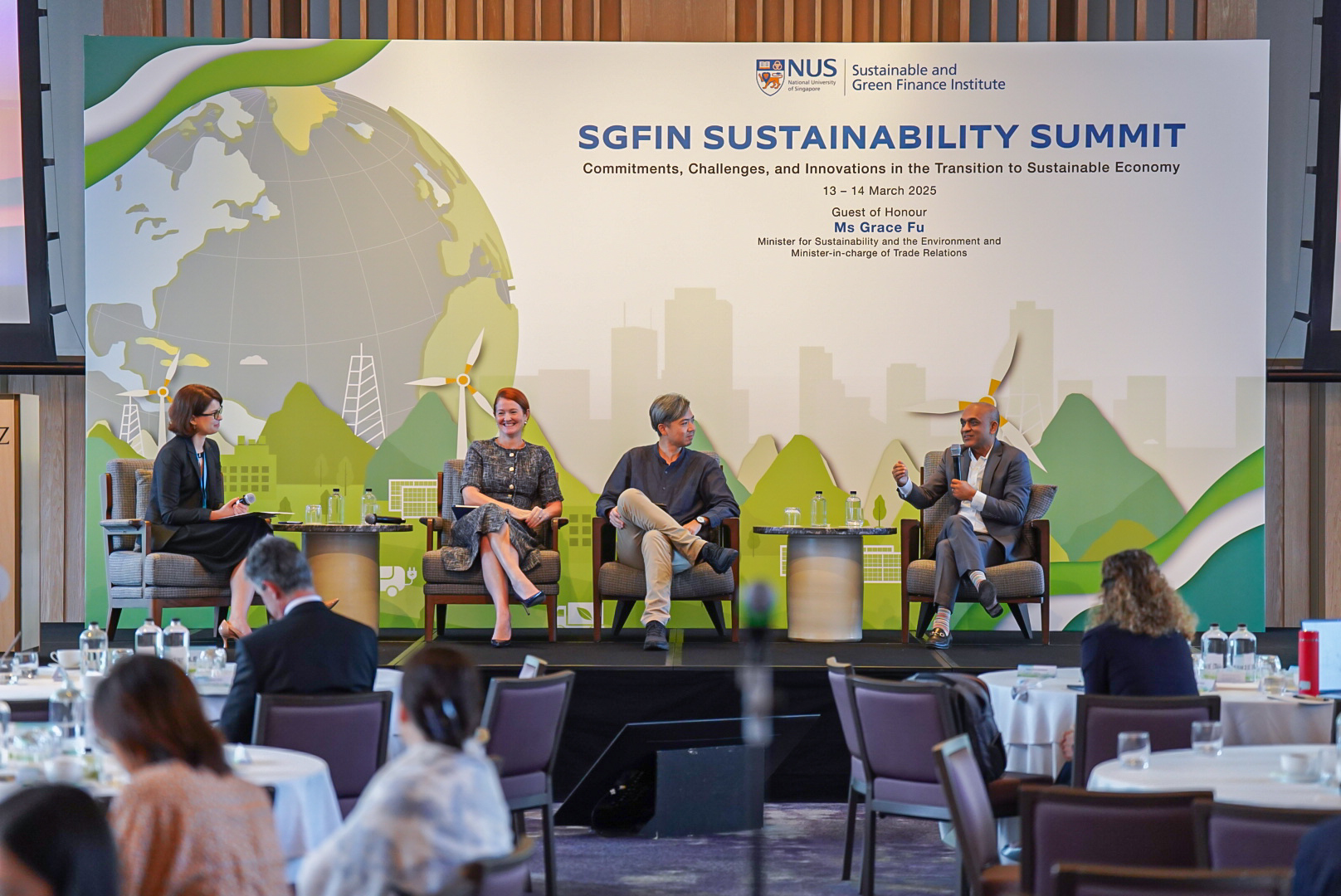
The second panel explored the challenges of decarbonizing supply chains, the role of financial institutions, and the shared responsibility of businesses and consumers in driving sustainability. Our panellists, Professor Sumit Agarwal (SGFIN), David Chen C.Y. (AgriG8), and Jaclyn Dove (Standard Chartered), highlighted the difficulties of reducing emissions in agriculture, the need for targeted capital investment, and the importance of ensuring financial support reaches small enterprises. Consumer behavior was also discussed as a key factor, with a call for better carbon footprint awareness and incentives to drive sustainable choices. The panel emphasized improving data transparency, leveraging AI for better decision-making, and shifting the sustainability narrative to make it more accessible and economically viable for broader adoption. [Read more]
3. Energy Transition Pathways
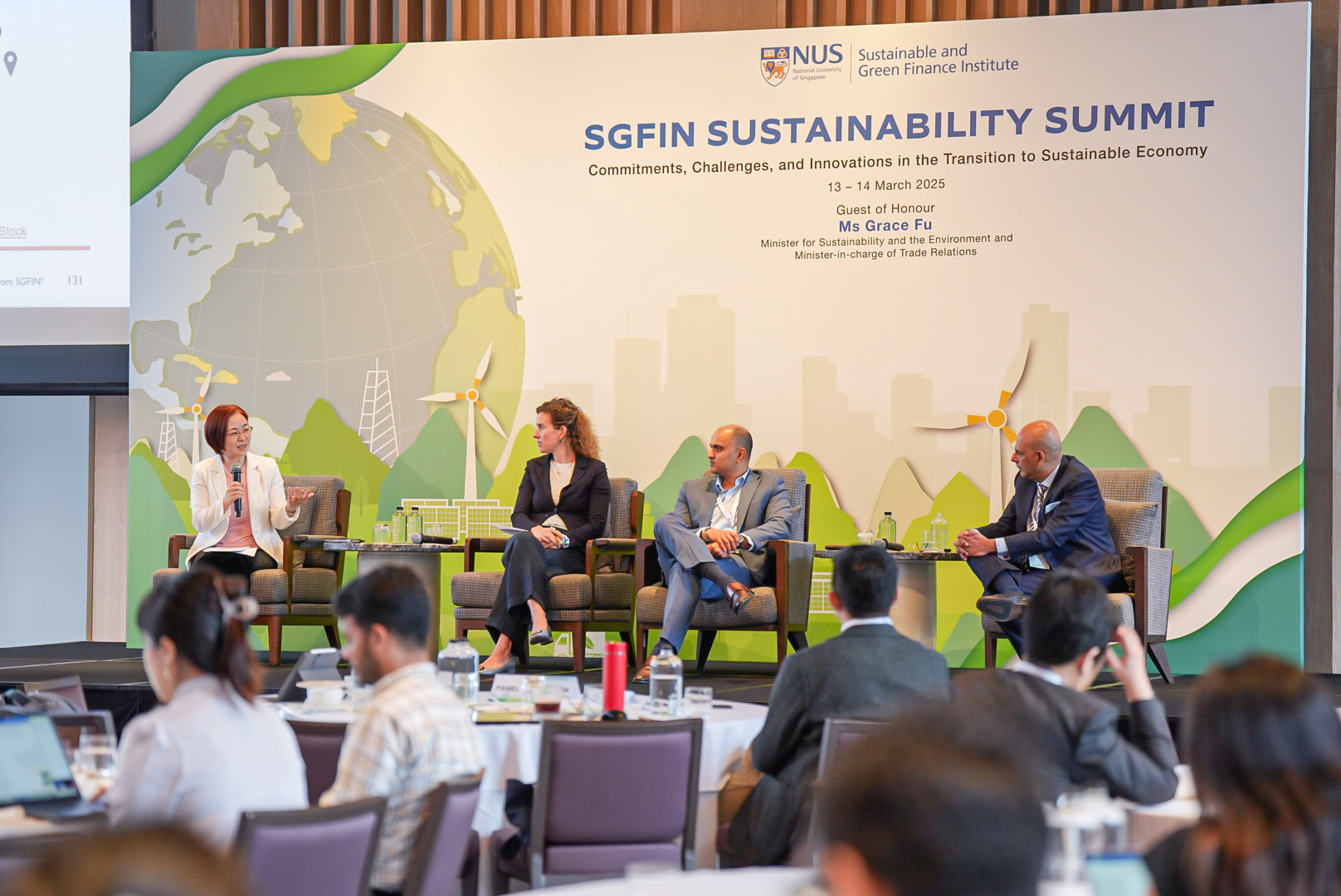
The third panel examined strategies for integrating renewables, balancing international trade with climate goals, and aligning global energy markets with sustainability. Our panellists, Jackie B. Surtani (Asian Development Bank), Rajiv Vishwanathan (DBS), and Beatrice Cassottana (Global Infrastructure Basel Foundation), highlighted that while capital for renewable projects is abundant, structuring bankable, long-term deals remains a key challenge due to land use conflicts, grid integration, and biodiversity concerns. The discussion also emphasized the need for smarter investments and supply chain readiness to support the rapid expansion of clean energy. Singapore’s role in Asia’s energy future was a focal point, with experts stressing the importance of cross-border energy imports, low-carbon taxonomies, and public-private financing to accelerate the region’s transition to sustainable energy. [Read more]
4. Carbon and Transition Credits
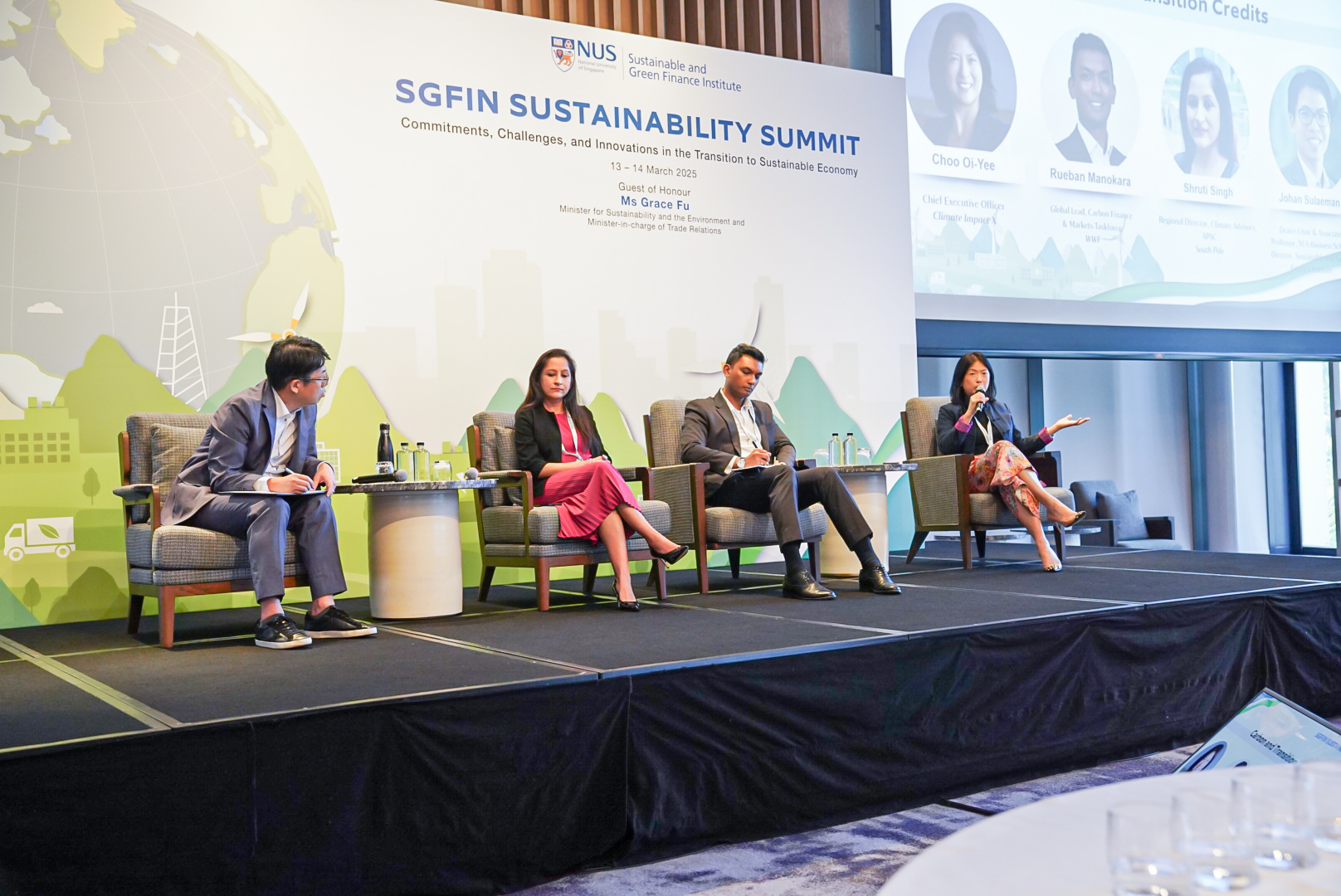
The closing panel explored ways to enhance the integrity of carbon markets, offering a refreshing perspective amid existing market challenges. Our panelists, Oi-Yee Choo (Climate Impact X), Shruti Singh (South Pole), and Rueban Manokara (WWF), emphasized the importance of both environmental and social integrity in assessing carbon credits, highlighting the role of local communities in project development. The discussion also underscored the need for standardization to improve transparency and liquidity, with existing certifications serving as benchmarks for market maturity. From a corporate perspective, carbon credits should be seen as a commitment to sustainability rather than a profit-driven tool, with ongoing efforts to provide clearer guidelines for their usage. Finally, the panel examined how the Article 6.4 market under the Paris Agreement could complement voluntary carbon markets, setting higher quality standards and mobilizing greater climate action. [Read more]
With thought-provoking discussions and actionable insights, the SGFIN Sustainability Summit reaffirmed the urgent need for collective action in advancing sustainable finance and climate resilience. As we navigate the complex challenges ahead, the summit served as a powerful platform for collaboration and knowledge-sharing among key stakeholders.
Links to External Articles: Business Times Online | Zaobao Online
Links to SGFIN LinkedIn: Opening Speech | Industry Keynote | Academic Keynote | Plenary Presentation | Net Zero Commitments and Business Strategy panel | Sustainable & Responsible Consumption panel | Energy Transition Pathways panel | Carbon and Transition Credits panel
